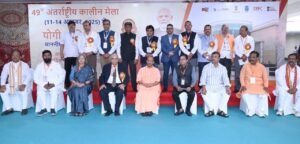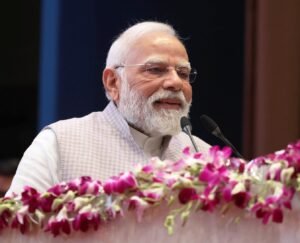the first time that the GII is being launched in an emerging economy-PiyushGoyal,
Union Minister of Commerce & Industry and Railways, PiyushGoyal, will launch the Global Innovation Index (GII) in New Delhi, tomorrow. This is the first time that the GII is being launched in an emerging economy. The Department for Promotion of Industry and Internal Trade (DPIIT) of Ministry of Commerce and Industry, Government of India, World Intellectual Property Organization (WIPO) and Confederation of Indian Industry (CII) are co-hosting the event.
During the last few years innovation has become central to the Government of India’s economic policy. This is now paying off with India’s rising performance in the GII. India jumped 24 places in four years: India was 81 in 2015, rose to 66th position in 2016, India was ranked 60th in GIIin 2017 and in 2018 achieved the 57th position in theGlobal Innovation Index. India’s efforts are a showcase of how policy efforts can boost innovation.
The theme of the 2019 GII is Creating Healthy Lives – The Future of Medical Innovation, which aims to explore the role of medical innovation as it shapes the future of healthcare.
India has been ranked the most innovative country in the Central and Southern Asia Region every year since 2011. India has consistently outperformed on innovation relative to its Gross Domestic Product (GDP) per capita.
India ranks as the second middle-income economy worldwide on the quality of its innovation in scientific publications, universities and patent families.
India is consistently among the top in the world on innovation parameters such as Information and Communication Technology (ICT), services exports, graduates in science and engineering, the quality of universities and scientific publications, economy-wide investments and creative goods exports.
India also stands out in the GII ranking of the world’s top science and technology clusters, with Bengaluru, Mumbai and New Delhi featuring among global top 100 clusters.
In 2016, the Department of Industrial Policy and Promotion created a high-level Task Force on Innovation to improve India’s innovation system based on the GII metrics. In 2017, the first international consultative exercise was organized to address India-specific data gaps in the GII, and to improve India’s innovation performance. In collaboration with WIPO, the first India innovation index – focusing on ranking Indian states – was conceptualized in 2017 and released a year later.
At the policy level, India’s Make in India, Start-up India, innovate India and Digital India initiatives were rolled out under the leadership of Prime Minister, Narendra Modi to further leverage India’s innovation performance.
The partnership between WIPO and the Government of India to refine Indian innovation metrics and sustain India’s innovation agenda has been vital. The DPIIT of the Ministry of Commerce and Industry has been promoting innovation investments with the aim of fostering long term economic and social development.
To support this effort and to promote vibrant innovation economies the GII probes and quantifies the state of national innovation ecosystems, including their strengths and weaknesses, thereby providing a critical tool for policy makers across the world.
DPIIT formulated a comprehensive National Intellectual PropertyRights(IPR)Policyin 2016 that not only stimulates innovation and creativity across sectors but also provides a clear vision regarding IPR issues. DPIIT has in partnership with industry associations conducted IPR awareness programmes in various states, in schools, universities and industries. DPIIT in association with Federation of Indian Chambers of Commerce and Industry (FICCI) has launched an IPR enforcement tool kit for the police. This tool kit aids police officials in dealing with IP crimes, in particular counterfeiting and piracy.
Judiciary plays a crucial role in strengthening the IP ecosystem and resolving conflicts. DPIIT has conducted sensitization programmes for judges. The Department has also taken various measures to increase transparency and efficiency of IP offices like e-Filing facility of patents and trademark, auto generation for trademark certificates and electronic certificates for patents after grant.
DPIIT has recruited 458 new technically competent Patent Examiners in various fields of technology in addition to the existing 130. Manpower has been increased in the trademark offices with 57 regular appointments of trademark examiners and 100 more inducted on contractual basis.
Patent and trademark rules have been amended, simplified, re-engineered and streamlined so that the process is expedited and pendency of patent applications is brought down.






